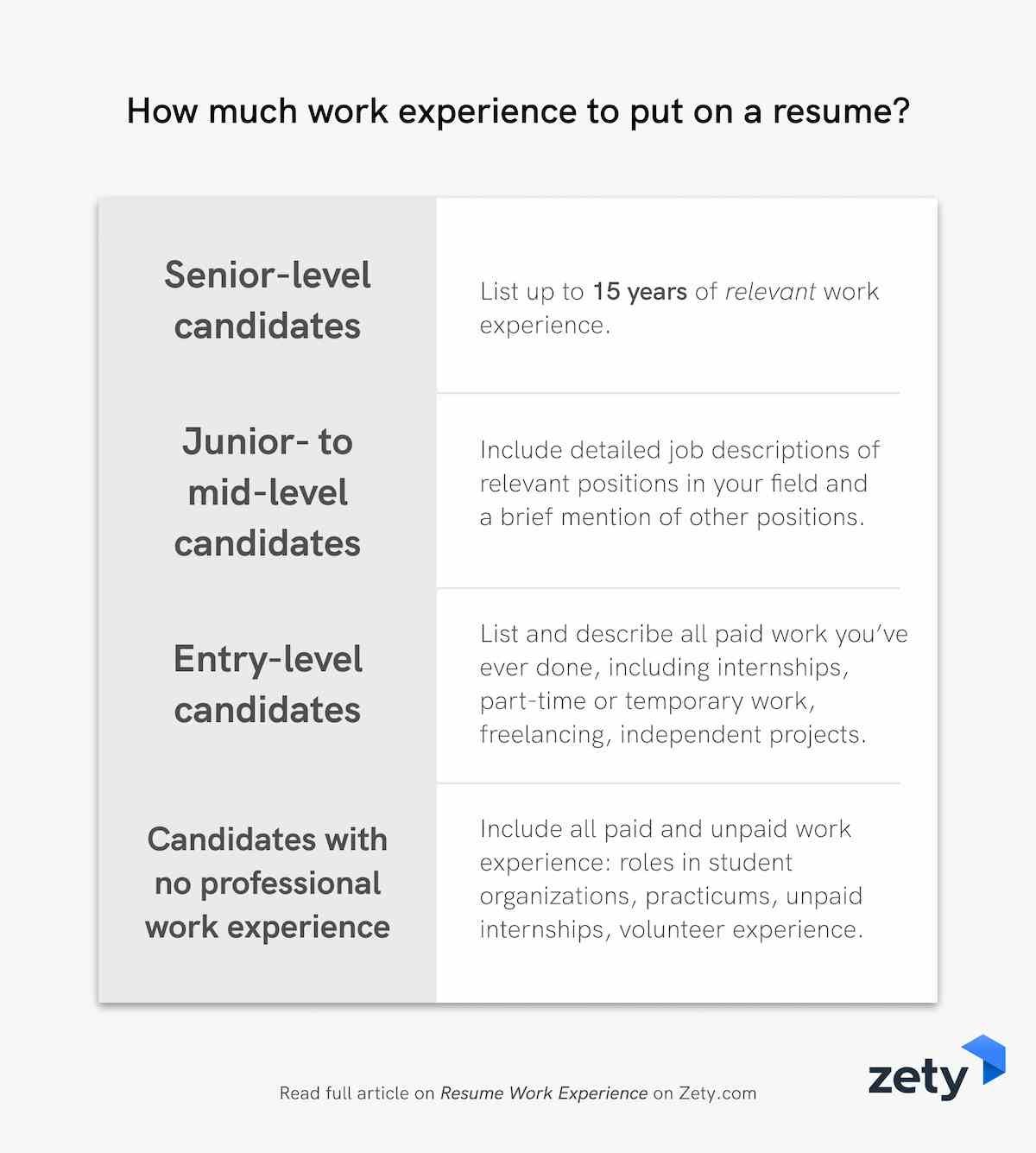Detailing Your work experience
The work experience section is the heart of your resume. Employers look at this section closely to determine whether your job history and prior accomplishments make you a promising candidate.
That’s why it’s important to detail not only your job responsibilities but also your competence in prior roles. The work experience section is your chance to show recruiters and hiring managers how you have added unique value to other companies.
The first things a recruiter looks for on your resume are the job titles you’ve held and the caliber of companies you’ve worked with. Make this information easy to find by sticking to a familiar format.
List each job in reverse-chronological order. Each job should have its own subheading that includes the following information:
- Company
- Job location
- Your job title
- Start and end dates
| DO | DON'TS |
|---|---|
| List your work experience in reverse-chronological order (most recent first) | Get hung up on every last job duty; put more emphasis on your most transferrable work experience and skills |
| Use consistent heading formatting | Outright lie in your resume work experience; tailor your actual experience without making things up |
| Focus on what will get you this job rather than everything you’ve ever done | Use long sentences or big block paragraphs if you can help it; think short sentences, strong verbs, and bullet points |
| Include strategic resume keywords to catch a recruiter’s eye and come up in search results | Go include over 10-20 years of work experience (in most cases– exceptions for federal, law, and other industries exist) |
| Mix accomplishments in with your duties to show that you’re successful and results-driven | Use the word “was” |
| Try to illustrate why you’ve gone from one job to the next | List every little thing you’ve ever done |

- Use a traditional section title, like “Work Experience,” “Professional Experience,” or “Job History.”
- Include measurable results where possible.
- Add as many relevant skills and keywords from the job description as possible.
- Tailor the information provided in this section to each job you apply to.
Ideally, your work experience trajectory will show things like increasing responsibilities or a narrowed career focus. For example, moving up from assistant to individual contributor to manager in the same field, or starting your career as a full stack developer but using new jobs to move towards front-end specialization.